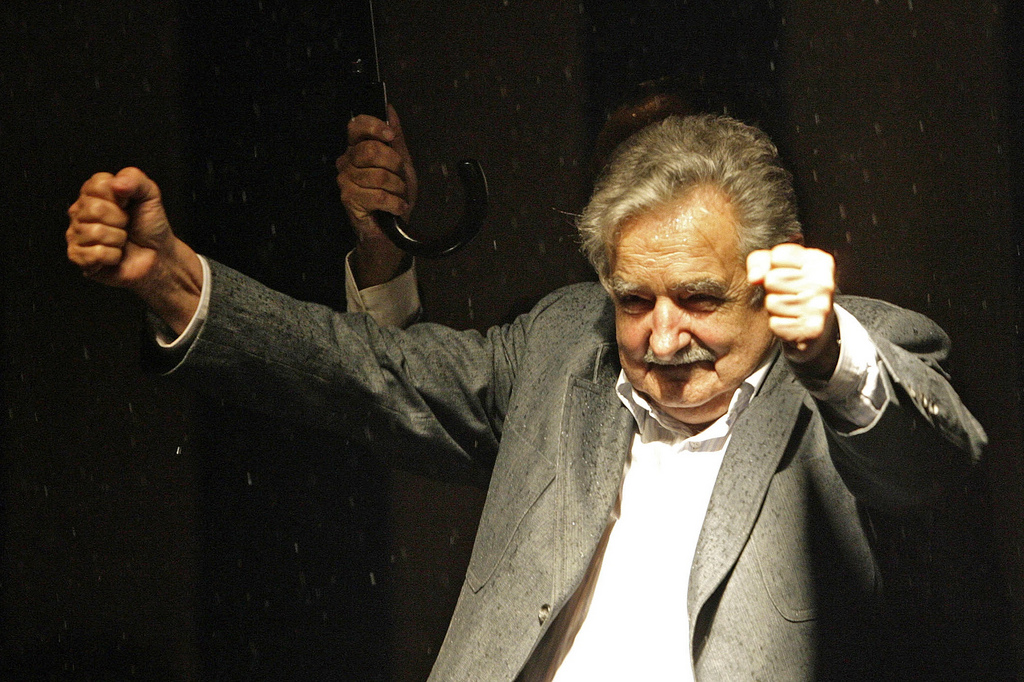Remembering José Mujica: Former President Of Uruguay (1935-2024)

Table of Contents
José Mujica's Early Life and Revolutionary Beginnings
José Mujica's journey began in humble circumstances in Montevideo, Uruguay. His early life laid the groundwork for his later political activism and revolutionary ideals. Crucially, his involvement with the Tupamaros, a left-wing guerrilla movement active in Uruguay during the 1960s and 70s, shaped his political philosophy and defined his commitment to social justice. The Tupamaros fought against inequality and oppression, advocating for a more equitable distribution of wealth and power in Uruguay.
- Birth and early years in Montevideo: Mujica's upbringing instilled in him a deep understanding of the struggles faced by ordinary Uruguayans.
- Involvement in the Tupamaros' revolutionary struggle: His dedication to the Tupamaros' cause led to years of intense political activism, marked by both successes and significant setbacks.
- Years spent imprisoned for his political activities: Mujica endured harsh conditions during his imprisonment, a period that solidified his commitment to social justice and his belief in the importance of fighting for a better world.
- Release from prison and his transition to formal politics: His release marked a significant turning point, demonstrating his ability to adapt and evolve his methods within the framework of formal politics while maintaining his fundamental beliefs. This transition highlights the evolution of his political thought from revolutionary to pragmatic leader.
The Presidency of José Mujica: A Unique Approach to Governance
Mujica's presidency (2010-2015) was characterized by an unprecedented level of humility and a profound commitment to social programs. Unlike many world leaders, he rejected the trappings of power, opting for a simple lifestyle in stark contrast to the opulent lifestyles often associated with presidential office. His political reforms and economic policies focused on addressing inequality and improving the lives of Uruguayans.
- Key policies and legislative achievements: His administration saw advancements in areas such as healthcare, education, and social welfare.
- His commitment to social welfare programs and equality: Mujica consistently prioritized policies aimed at reducing poverty and promoting equality within Uruguayan society.
- His modest lifestyle and rejection of presidential luxuries: His choice to live modestly and donate a significant portion of his salary became a powerful symbol of his commitment to the people.
- His international influence and relationships with other world leaders: Mujica's unique approach to politics garnered significant international respect, establishing strong relationships with other world leaders. His influence extended far beyond Uruguay's borders.
Mujica's Legacy: Simplicity, Social Justice, and a Lasting Influence
José Mujica's legacy extends far beyond his presidency. He remains an inspirational figure for his commitment to simple living and social justice. His impact on Uruguay is undeniable; his post-presidency work continued to shape political discourse and social activism. His influence on global politics is equally significant.
- His enduring influence on Uruguayan politics and society: Mujica’s emphasis on social justice and equality continues to resonate within Uruguayan political discourse.
- His international recognition as a symbol of alternative political leadership: He inspired leaders and activists around the world with his unique approach and unwavering commitment to his beliefs.
- His advocacy for social justice and environmental sustainability: Mujica's legacy encompasses a broad commitment to social and environmental issues, demonstrating a holistic view of progressive politics.
- His ongoing commitment to political engagement and public discourse: Even after leaving office, Mujica remained actively involved in political life, using his voice to advocate for social justice and sustainable development.
Conclusion:
José Mujica's life was a remarkable journey. From his early involvement with the Tupamaros to his presidency and beyond, he remained steadfast in his commitment to social justice and simple living. He challenged traditional notions of power and leadership, demonstrating that effective governance doesn't require extravagance or pomp. His legacy as a champion of the people and an inspiration for a more equitable world will continue to inspire future generations. Remembering José Mujica and his legacy of simple living and social justice is crucial to inspiring future leaders and creating a more equitable world. Learn more about his life and continue his important work today. Seek out documentaries and biographies to delve deeper into the life of this extraordinary political figure. His story reminds us that even within the complexities of politics, simple principles of integrity and social justice can lead to profound positive impact.

Featured Posts
-
 Bianca Censori In Bra And Thong Roller Skating Style
May 14, 2025
Bianca Censori In Bra And Thong Roller Skating Style
May 14, 2025 -
 9 Explosive Hollyoaks Spoilers Next Weeks Unmissable Events
May 14, 2025
9 Explosive Hollyoaks Spoilers Next Weeks Unmissable Events
May 14, 2025 -
 Yevrobachennya 2024 Povna Informatsiya Pro Datu Mistse Provedennya Ta Uchasnikiv Vklyuchayuchi Predstavnika Ukrayini
May 14, 2025
Yevrobachennya 2024 Povna Informatsiya Pro Datu Mistse Provedennya Ta Uchasnikiv Vklyuchayuchi Predstavnika Ukrayini
May 14, 2025 -
 Maya Jamas Angry Reaction To Gary Linekers Ruben Dias Comment
May 14, 2025
Maya Jamas Angry Reaction To Gary Linekers Ruben Dias Comment
May 14, 2025 -
 Yevrobachennya 2025 Konkurs V Nestandartnomu Formati
May 14, 2025
Yevrobachennya 2025 Konkurs V Nestandartnomu Formati
May 14, 2025
